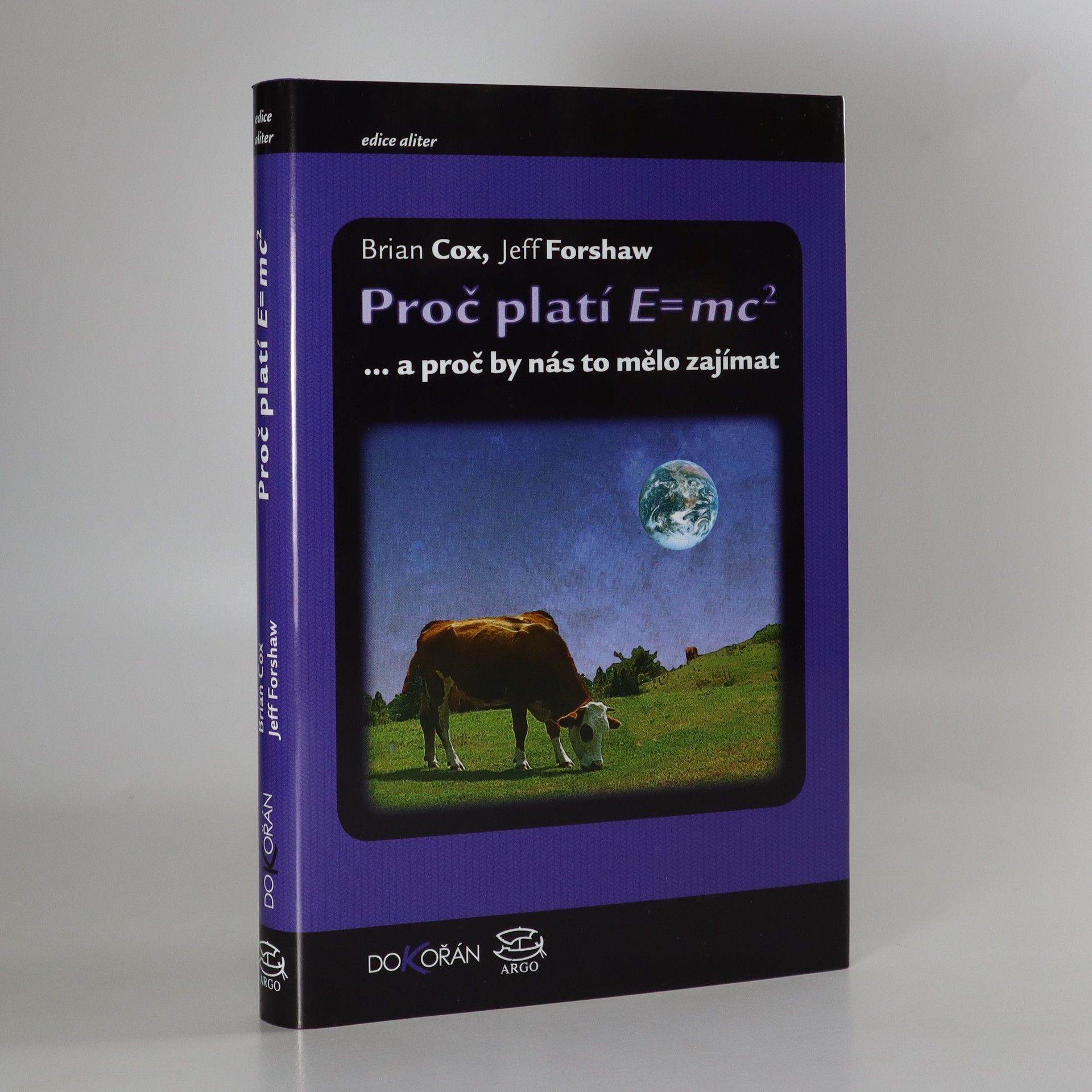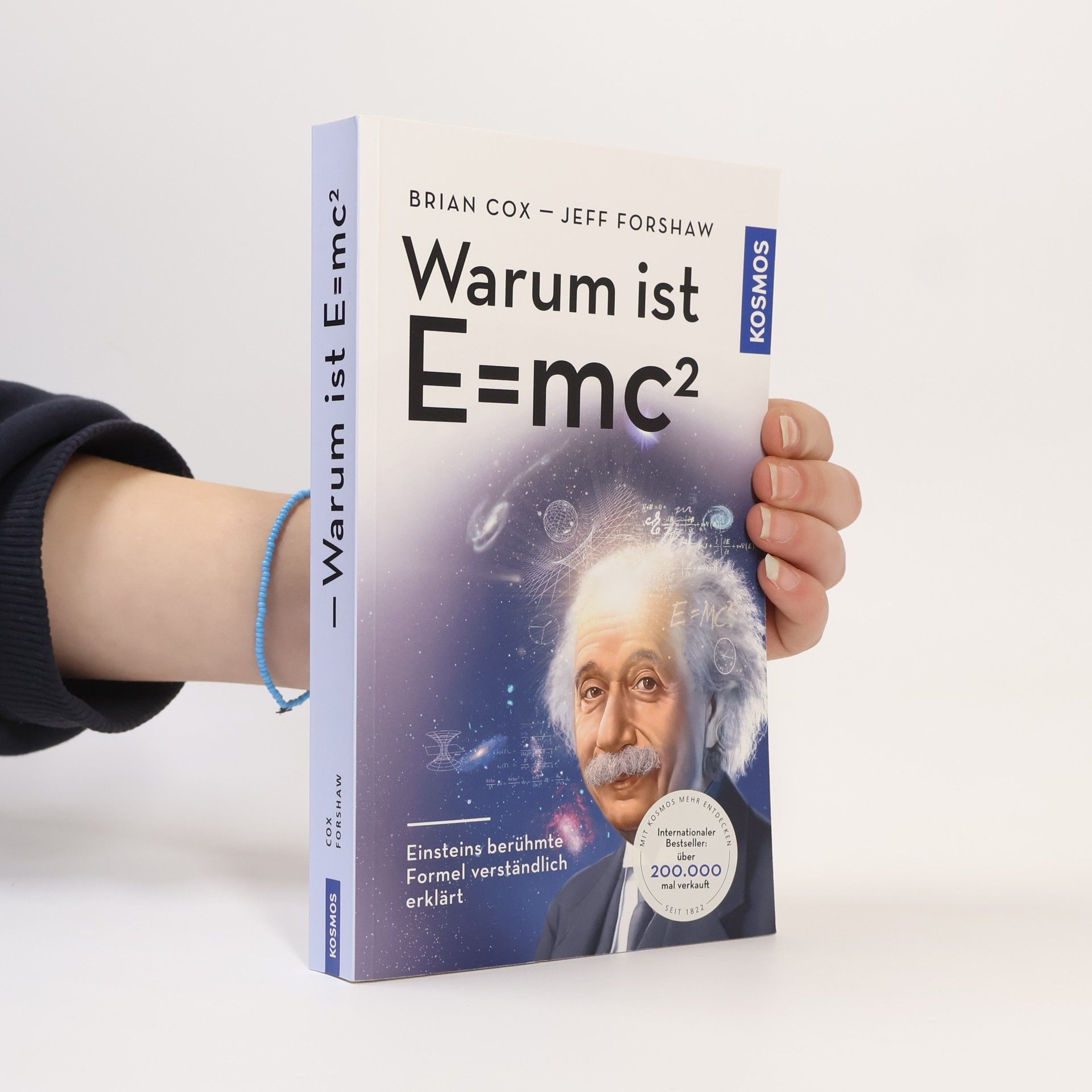Černé díry leží tam, kde dříve zářily nejhmotnější hvězdy, v centrech galaxií a na hranici našeho současného chápání. Jsou to přirozeně se vyskytující objekty, nevyhnutelné výtvory gravitace, pokud se příliš mnoho hmoty zhroutí do dostatečně malého prostoru. A i když je naše přírodní zákony předpovídají, nedokážou je zcela popsat. Fyzici věnují celé své kariéry hledání problémů, provádějí experimenty a pátrají po všem, co nelze vysvětlit známými zákony. Na rostoucím počtu černých děr, které objevujeme rozeseté po obloze, je úžasné, že každá z nich je experimentem prováděným Přírodou, který nedokážeme vysvětlit. To znamená, že nám něco hlubokého uniká.
J. R. Jeffrey Robert Forshaw Reihenfolge der Bücher (Chronologisch)





Universal. A guide to the cosmos
- 256 Seiten
- 9 Lesestunden
Physics is about asking questions. But what are good questions? How do we understand the fundamental forces of the Universe and its remarkable uniformity? This book answers these questions.
... a proč by nás to mělo zajímat. Všichni tuto rovnici někdy viděli. Všichni znají i jejího autora. Málokdo však ví, co znamená. A ještě méně lidí chápe, jak k ní od základních fyzikálních principů dojít. Cílem této knihy je rozšířit právě tuto poslední skupinu. Text nás provází od základů klasické mechaniky a intuitivních fyzikálních a geometrických pojmů, přes teorii elektromagnetického pole, speciální a obecnou relativitu, až po standardní model částicové fyziky. Abychom pochopili obsah ústřední rovnice, musíme totiž porozumět významu jednotlivých výrazů, které v ní vystupují. Musíme vědět, co je energie, co je hmotnost a kde se bere a proč je c zrovna rychlostí světla. To vše nám kniha přístupnou formou přiblíží, současně se však autoři nezaleknou ani matematických rovnic. Zároveň ukazují čtenářům, jak se fyzikové dívají na svět. Z celé knihy je cítit radost a potěšení, které autoři zažívají při uvažování o tom, jak vlastně svět ve skutečnosti funguje; poznat je i to, že jde o zkušené vysokoškolské pedagogy, aktivní vědce a mimořádně úspěšné popularizátory v tomto oboru.
The Quantum Universe
- 256 Seiten
- 9 Lesestunden
The Quantum Universe brings together two authors on a brilliantly ambitious mission to show that everyone can understand the deepest questions of science. But just what is quantum physics? How does it help us understand the universe? Where does it leave Newton and Einstein? And how - for all its apparently counter-intuitive ideas - can we be sure that the theory is good? The bizarre behaviour of the atoms and energy that make up the universe has lead to some woolly pronouncements on the nature of all interconnectedness - but Brian Cox and Jeff Forshaw reveal the simple and understandable theories that allow for concrete, yet astonishing, predictions about the world around us. From entangled twins to the incredible double-slit experiment, The Quantum Universe will give every reader the most up-to-date picture of that amazing subatomic world, where thousands of years of physics must be rewritten completely
E = mc² ist die berühmteste Formel der Welt. Mit ihr brachte Einstein es auf den Punkt: Energie und Masse sind zwei Seiten derselben Medaille und die Lichtgeschwindigkeit c ist ihr Wechselkurs. Doch warum besteht dieses so einfache Verhältnis? Wie ist Albert Einstein zu diesem Schluss gekommen? Und welche Folgen für das Verständnis des Universums ergeben sich daraus? Brian Cox, Professor für Physik und in England durch seine Sendungen auf BBC sehr bekannt, hat sich zusammen mit seinem Kollegen Jeff Forshaw, Professor für theoretische Physik, die scheinbar einfache Einstein-Gleichung vorgenommen, um sie mit viel Energie ausführlich und verständlich zu erklären.